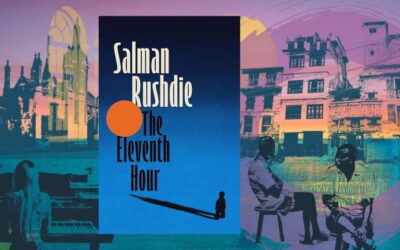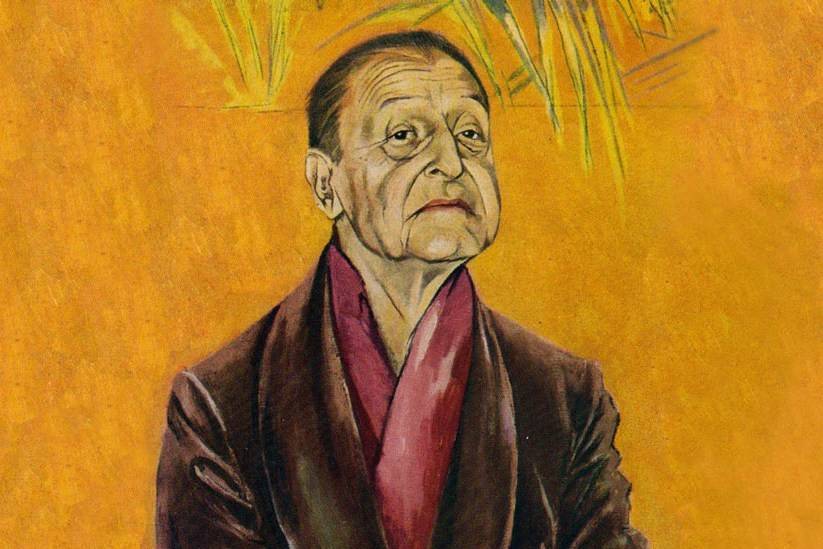Read Around the World 2025 Edition

For our Read Around the World 2025 Edition, we’ve got 12 Incredible Books from as far apart as Malaysia, Tanzania and Cuba. What they have got in common is they are wonderful books written by unbelievably talented authors. Enjoy!
This post may contain affiliate links that earn us a commission at no extra cost to you.
Read Around the World 2025 Edition
The South by Tash Aw (Malaysia)

When his grandfather dies, a boy named Jay travels south with his family to the property he left them, a once flourishing farm that has fallen into disrepair. The trees are diseased, the fields parched from months of drought.
Still, Jay’s father, Jack, sends him out to work the land, or whatever land is left. Over the course of these hot, dense days, Jay finds himself drawn to Chuan, the local son of the farm’s manager, different from him in every way except for one.
Out in the fields, and on the streets into town, the charge between the boys intensifies. Inside the house, the other family members confront their own regrets, and begin to drift apart. Like the land around them, they are powerless to resist the global forces that threaten to render their lives obsolete.
At once sweeping and intimate, The South is a story of what happens when private and public lives collide. It is the first in a quartet of novels that form Tash Aw’s masterful portrait of a family navigating a period of great change—a reimagined epic for our times.
Deeper than the Ocean by Mirta Ojito (Cuba)

One hundred years after the shipwreck of the Valbanera, known to history as the “poor man’s Titanic,” Mara Denis gets an assignment to report on the Canary Islands, where her ancestors lived before they moved to Cuba. Unexpectedly, she discovers that the grandmother her mother cherished was listed among the dead of the Valbanera, years before Mara’s mother was even born. This fateful twist changes everything Mara thought she knew about her family and herself, and sends her on a quest to find the truth. If her great grandmother is a ghost, who is she and where did she come from?
In spare, beautiful writing, the author transports the reader to the Canary Islands and Cuba in the early part of the twentieth century and New York and Key West in the present.
We Do Not Part by Han Kang (South Korea)
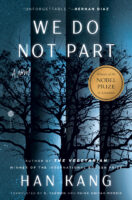
Beginning one morning in December, We Do Not Part traces the path of a young woman, Kyungha, as she travels from the city of Seoul into the forests of Jeju Island, to the home of her old friend Inseon. Hospitalised following an accident, Inseon has begged Kyungha to hasten there to feed her beloved pet bird, who will otherwise die.
Kyungha takes the first plane to Jeju, but a snowstorm hits the island the moment she arrives, plunging her into a world of white. Beset by icy wind and snow squalls, she wonders if she will arrive in time to save the bird – or even survive the terrible cold which envelops her with every step. As night falls, she struggles her way to Inseon’s house, unaware as yet of the descent into darkness which awaits her.
There, the long-buried story of Inseon’s family surges into light, in dreams and memories passed from mother to daughter, and in a painstakingly assembled archive documenting a terrible massacre on the island seventy years before.
A Calamity of Noble Houses by Amira Ghenim (Tunisia)
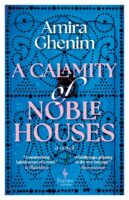
One fateful night in December 1935, the destinies of two prominent families are changed forever. Zubaida, the young wife of Mohsen Ennaifer, is suspected of a clandestine love affair with Tahar, a radical intellectual from humble origins. This scandalous tryst has many facets, many truths, that are recounted in the voices of the eleven different narrators who, in a feat of storytelling virtuosity, animate this spectacular novel. A complex fresco of secrets, memories, accusations, regrets, and passions set against the backdrop of a country in turmoil, in search of its modern identity.
A compelling, muti-generational story of women’s lives in one of the Arab World’s most intriguing countries, a drama of forbidden love, and a contemporary narrative in which the truth remains forever slightly out of reach, A Calamity of Noble Houses is Amira Ghenim’s English language debut
The Wax Child by Olga Ravn (Denmark)

Based on a real-life seventeenth century Danish witch trial, The Wax Child tells in vivid prose the story of Christenze Kruckow, a noblewoman long pursued by a scandal of sorcery. People whisper that in her wake one finds illness, death, and unsettling behaviour by pigs and cats.
Some even say she once fashioned out of wax a child, an instrument of the most sinister magic. Christenze will flee the rumours to Aalborg, that great city of seawater and mist. But even there suspicion and fear rule, and once a rumour of witchcraft has taken hold, it can prove hard to shake.
Women Seated by Zhang Yueran (China)

Enter the world of an elite Chinese couple: a life of luxury, wealth, and around-the-clock service, which includes their trusted nanny, Yu Ling. Slipping in and out of the shadows, meticulous in her care of their only son, she has served the family for years and knows their secrets. But little do they suspect that Yu Ling has secrets of her own.
In the pressure-cooker political environment of China, the fates of even the most powerful families can reverse overnight. When the family becomes the subject of a government investigation, their fortunes crumble, and the nanny is left to make a series of life-changing choices. How far will she go to claim her due?
Cursed Daughters by Oyinkan Braithwaite (Nigeria)

No man will call your house his home. And if they try, they will not have peace…
So goes the family curse, long handed down from generation to generation, ruining families and breaking hearts. And now it’s Eniiyi’s turn – who, due to her uncanny resemblance to her dead aunt, Monife, is already used to her family’s strange beliefs, as well as their insistence that she is a reincarnation. Still, when she falls in love with the handsome boy she saves from drowning, she can no longer run from her family’s history. Is she destined to live out the habitual story of love
Theft by Abdulrazak Gurnah (Tanzania)
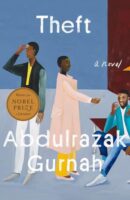
It is the 1990s. Growing up in Zanzibar, three very different young people – Karim, Fauzia and Badar – are coming of age, and dreaming of great possibilities in their young nation. But for Badar, an uneducated servant boy who has never known his parents, it seems as if all doors are closed.
Brought into a lowly position in a great house in Dar es Salaam, Badar finds the first true home of his life – and the friendship of Karim, the young man of the house. Even when a shattering false accusation sees Badar sent away, Karim and Fauzia refuse to turn away from their friend.
But as the three of them take their first steps in love, infatuation, work and parenthood, their bond is tested – and Karim is tempted into a betrayal that will change all of their lives forever.
The Book of Guilt by Catherine Chidgey (New Zealand)

England, 1979. Vincent, Lawrence and William are the last remaining residents of a secluded New Forest home, part of the government’s Sycamore Scheme. Every day, the triplets do their chores, play their games and take their medicine, under the watchful eyes of three mothers: Mother Morning, Mother Afternoon and Mother Night.
Their nightmares are recorded in The Book of Dreams.
Their lessons are taken from The Book of Knowledge.
And their sins are reported in The Book of Guilt.
All the boys want is to be sent to the Big House in Margate, where they imagine a life of sun, sea and fairground rides. But, as the government looks to shut down the Sycamore Homes, the triplets begin to question everything they have been told.
Gradually surrendering its dark secrets, The Book of Guilt is a profoundly unnerving exploration of belonging in a world where some lives are valued less than others.
Somebody Is Walking on Your Grave by Mariana Enriquez (Argentina)

In Somebody is Walking on Your Grave, Mariana Enriquez blends journalistic rigour and her fascination with the macabre as we encounter famous graveyards steeped in history, such as Montparnasse in Paris, Highgate in London, and the Jewish cemetery in Prague, as well as more remote, decrepit, hidden, or secretly beautiful ones. These pages are full of the graves of famous figures – Elvis in Memphis, Karl Marx in London – mournful sculptures, traces of voodoo, catacombs, skeletons and an array of legends and stories. Mariana’s personal journey weaves through haunting narratives, transforming burial grounds into spaces of reflection, obsession, and emotional discovery between the living and the dead.
From the haunting statues of Staglieno in Genoa to the eerie silence of Rottnest Island’s hidden Aboriginal cemetery, Enriquez’s narrative shifts effortlessly between travelogue, essay, and memoir. In her unique voice, cemeteries transform into living, breathing places of reflection, obsession and revelation. As she roams, each cemetery becomes a lens through which she examines everything from colonial violence to the strange rituals surrounding death.
Heart Lamp by Banu Mushtaq (India)

Winner of the International Booker Prize 2025
In the twelve stories of Heart Lamp, Banu Mushtaq exquisitely captures the everyday lives of women and girls in Muslim communities in southern India.
Praised for their dry and gentle humour, these portraits of family and community tensions have garnered both censure from conservative quarters as well India’s most prestigious literary awards.
The Creation of Half-Broken People by Siphiwe Gloria Ndlovu (Zimbabwe)

Showcasing African Gothic at its finest, The Creation of Half-Broken People is the extraordinary tale of a nameless woman plagued by visions. She works for the Good Foundation and its museum filled with artifacts from the family’s exploits in Africa, the Good family members all being descendants of Captain John Good, of King Solomon’s Mines fame.
Our heroine is happy with her association with the Good family, until one day she comes across a group of protestors outside the museum. Instigating the group is an ancient woman, who our heroine knows is not real. She knows too that the secrets of her past have returned. After this encounter, the nameless woman finds herself living first in an attic and then in a haunted castle, her life anything but normal as her own intangible inheritance unfolds through the women who inhabit her visions.
With a knowing nod to classics of the Gothic genre, Siphiwe Gloria Ndlovu weaves the threads of a complex colonial history into the present through people “half-broken” by the stigmas of race and mental illness, all the while balancing the humanity of her characters against the cruelty of empire in a hypnotic, haunting account of love and magic.
If you enjoyed Read Around the World 2025 Edition, check out our International Booker Prize 2025 review





